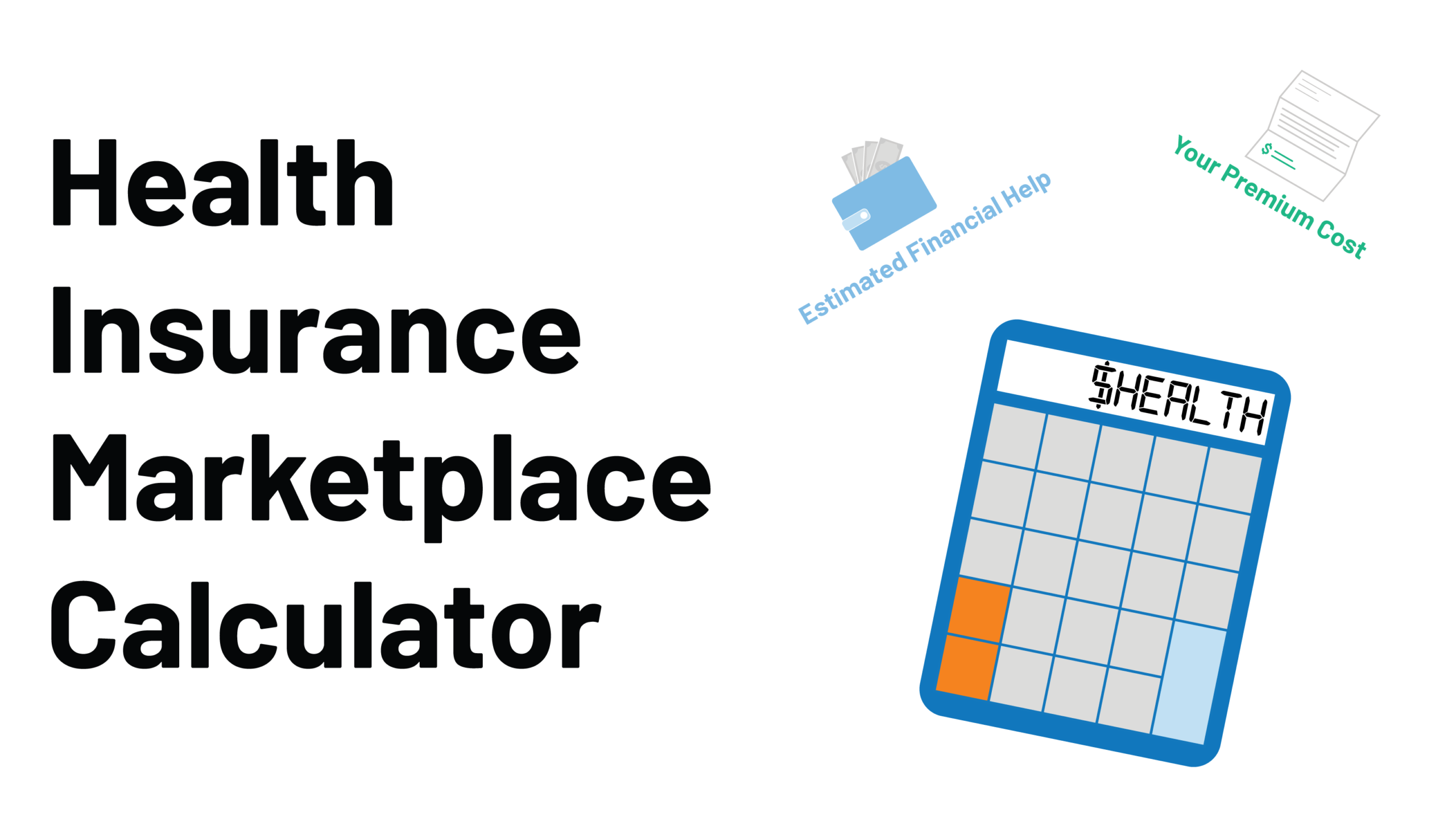Purchasing Health Insurance through the Marketplace: Comprehensive Guide
Health insurance plays a crucial role in providing financial security and access to quality healthcare services. For individuals and families seeking affordable coverage, the Health Insurance Marketplace offers a viable solution.
In this article, we will explore the ins and outs of purchasing health insurance through the Marketplace, understanding its benefits, eligibility criteria, plan options, and other essential information to make informed decisions about your healthcare needs.
Understanding the Health Insurance Marketplace
What is the Health Insurance Marketplace?
The Health Insurance Marketplace, also known as the Health Insurance Exchange, is an online platform established under the Affordable Care Act (ACA) to provide individuals and families with a centralized marketplace to purchase health insurance plans.
It serves as a hub where consumers can compare various health insurance options, determine their eligibility for financial assistance, and enroll in a plan that best suits their needs and budget.
The Marketplace offers a wide range of health insurance plans from different insurance companies, making it easier for consumers to find affordable coverage that meets their specific healthcare requirements. It operates both at the state and federal levels, with individual states having the option to run their own Marketplaces or partner with the federal government to facilitate enrollment.
How does it work?
- Plan Comparison: The Marketplace allows individuals to browse and compare different health insurance plans based on coverage, costs, and provider networks. Each plan is categorized as Bronze, Silver, Gold, or Platinum, representing their coverage levels and cost-sharing arrangements. Consumers can review the details of each plan, including premiums, deductibles, copayments, and coinsurance.
- Financial Assistance: One of the significant advantages of the Marketplace is the availability of financial assistance to make health insurance more affordable for eligible individuals and families. When applying for coverage through the Marketplace, applicants can determine their eligibility for two types of financial aid:
- Premium Tax Credits: These credits are designed to reduce the amount individuals or families pay for monthly premiums. They are based on income and household size, with higher subsidies provided to those with lower incomes.
- Cost-Sharing Reductions: These subsidies reduce out-of-pocket costs, such as copayments, deductibles, and coinsurance, for eligible individuals with lower incomes.
- Eligibility and Enrollment: The Marketplace operates on an annual enrollment schedule known as the Open Enrollment Period, which typically runs from November to December each year. During this time, anyone can enroll in a health insurance plan or make changes to their existing coverage.
- Special Enrollment Period (SEP): Outside the Open Enrollment Period, individuals may still qualify for a Special Enrollment Period if they experience certain life events, such as getting married, having a child, losing other health coverage, or moving to a new area.
- Application and Enrollment Process: To apply for health insurance through the Marketplace, applicants need to provide personal information, income details, and household size. The Marketplace website guides applicants through the application process, helping them determine their eligibility for financial assistance and recommending suitable health plans based on their circumstances.
- Plan Enrollment: Once applicants have chosen a health insurance plan and completed the application process, they can enroll in the selected plan, and coverage typically begins on January 1st of the following year.
Who can use the Marketplace?
The Health Insurance Marketplace is available for use by U.S. citizens and legal immigrants residing in the United States. It caters to individuals and families who are not eligible for employer-sponsored health insurance or government programs like Medicare, Medicaid, or the Children’s Health Insurance Program (CHIP).
Any person who meets the following criteria can use the Marketplace to purchase health insurance:
- Must be a U.S. citizen or a lawfully present immigrant.
- Must not be incarcerated.
- Must not be eligible for employer-sponsored health insurance that meets certain standards of affordability and coverage.
- Must not be eligible for government programs like Medicare, Medicaid, or CHIP.
- Must not have access to other minimum essential coverage.
It is essential to note that undocumented immigrants are not eligible to purchase health insurance through the Marketplace. Additionally, certain Native American tribes and individuals with qualifying religious exemptions may be exempt from using the Marketplace.
Using the Health Insurance Marketplace offers an accessible and convenient way for eligible individuals and families to find comprehensive health insurance coverage and ensure their well-being in the face of medical expenses and unexpected health challenges.
Benefits of Purchasing Health Insurance through the Marketplace
Financial Assistance Options
One of the most significant advantages of the Marketplace is the availability of financial assistance to reduce the cost of health insurance. Eligible applicants can benefit from two main types of financial aid:
- Premium Tax Credits: These credits can lower your monthly premium costs, making health insurance more affordable.
- Cost-Sharing Reductions: If you qualify for this assistance, it reduces out-of-pocket costs like copayments, deductibles, and coinsurance, making healthcare more accessible when you need it most.
Range of Health Plans Available
The Marketplace offers a diverse range of health insurance plans, catering to different needs and budgets. Each plan falls into one of four categories – Bronze, Silver, Gold, and Platinum – based on their coverage levels and cost-sharing arrangements.
Essential Health Benefits Coverage
All Marketplace plans must cover essential health benefits, including preventive services, outpatient care, prescription drugs, hospitalization, maternity and newborn care, mental health services, and more. This ensures that individuals have comprehensive coverage for critical medical services.
Consumer Protections
The Marketplace operates under consumer protection regulations that prohibit insurance companies from denying coverage based on pre-existing conditions or charging higher premiums due to health status. This ensures fair access to coverage for all applicants.
Eligibility and Enrollment Process
Open Enrollment Period
The Open Enrollment Period typically occurs annually, during which individuals can enroll in or make changes to their health insurance plans. This period is an excellent opportunity for new applicants to get coverage and for existing enrollees to review their options.
Special Enrollment Period
Outside of the Open Enrollment Period, certain life events such as marriage, birth/adoption of a child, loss of other health coverage, or relocation may trigger a Special Enrollment Period. This allows individuals to sign up for health insurance even if it’s not during the standard enrollment window.
Qualifying Life Events
To qualify for the Special Enrollment Period, individuals must have experienced a qualifying life event that resulted in changes to their health insurance needs.
Applying for Health Insurance through the Marketplace
The application process involves providing personal information, income details, and household size to determine eligibility for financial assistance and suitable health plans.
Navigating the Enrollment Process
The enrollment process can seem overwhelming, but the Marketplace website provides clear instructions and tools to help applicants find the right plan that fits their requirements.
Understanding Health Insurance Plans
Types of Health Insurance Plans Offered
The Marketplace offers various types of health plans, including:
- Health Maintenance Organization (HMO): This plan offers comprehensive coverage within a specific network of healthcare providers and requires referrals for specialist consultations.
- Preferred Provider Organization (PPO): PPO plans provide more flexibility in choosing healthcare providers, both in-network and out-of-network, without requiring referrals.
- Exclusive Provider Organization (EPO): EPO plans are a hybrid between HMOs and PPOs, providing coverage within a limited network, but without requiring referrals.
- Point of Service (POS): POS plans allow members to choose providers from both in-network and out-of-network options but may require referrals for specialist care.
- High Deductible Health Plans (HDHP): HDHPs have higher deductibles but often lower premiums, coupled with the option to open a Health Savings Account (HSA) for tax-free healthcare savings.
Coverage Levels: Bronze, Silver, Gold, and Platinum
The four coverage levels represent the actuarial value of the plans and determine the percentage of healthcare costs the plan covers on average. Bronze plans have the lowest actuarial value (60%), while Platinum plans have the highest (90%).
Networks and Providers
When choosing a health plan, consider the network of healthcare providers included in the plan’s coverage. In-network providers generally offer lower costs, while out-of-network care may result in higher out-of-pocket expenses.
Tips for Choosing the Right Health Insurance Plan
Assessing Your Healthcare Needs
Understand your medical history and anticipate potential healthcare needs for the coming year to choose a plan that meets your requirements.
Understanding Cost Considerations
Factor in not only the monthly premium but also other out-of-pocket costs such as deductibles, copayments, and coinsurance when evaluating plan affordability.
Reviewing Network Coverage
Ensure that your preferred healthcare providers are in the plan’s network to maximize coverage and minimize costs.
Checking Prescription Drug Coverage
If you take regular medications, verify that your prescriptions are covered under the plan’s formulary to avoid unexpected costs.
Evaluating Customer Reviews and Ratings
Research customer reviews and ratings for different health insurance plans to gain insights into customer satisfaction and the efficiency of the insurance providers.
Making the Most of Your Health Insurance
Understanding Copayments, Deductibles, and Coinsurance
Know the differences between copayments (fixed fees for specific services), deductibles (the amount you pay before the insurance kicks in), and coinsurance (your share of the costs after reaching the deductible). Understanding these cost-sharing elements will help you manage your healthcare expenses more effectively.
Utilizing Preventive Services
Take advantage of preventive services covered by your health insurance plan, such as screenings, vaccinations, and wellness check-ups. Preventive care can help identify health issues early, leading to better health outcomes and reduced long-term costs.
Exploring Telehealth Options
Many Marketplace health plans now offer telehealth services, allowing you to consult with healthcare professionals remotely. Telehealth can be convenient and cost-effective for certain non-emergency medical issues.
Knowing Your Rights and Appeals Process
Familiarize yourself with your rights as a health insurance consumer. If you encounter issues with coverage or claims, understand the process for filing an appeal to address any discrepancies.
Frequently Asked Questions (FAQs)
What is the deadline for enrolling in a health insurance plan through the Marketplace?
The Open Enrollment Period typically runs from November to December each year. However, certain life events may qualify individuals for a Special Enrollment Period at other times of the year.
How can I determine if I qualify for financial assistance?
By completing the application process on the Marketplace website, you can determine your eligibility for premium tax credits and cost-sharing reductions based on your income and household size.
Can I purchase health insurance outside of the Open Enrollment Period?
Outside the Open Enrollment Period, you can only purchase health insurance through the Marketplace if you qualify for a Special Enrollment Period due to certain life events.
What are the essential health benefits covered by Marketplace plans?
Marketplace plans must cover essential health benefits, including preventive services, emergency care, hospitalization, prescription drugs, and more.
Can I keep my current doctor if I purchase insurance through the Marketplace?
The availability of your current doctor within a Marketplace plan’s network depends on the specific plan you choose. Always check the provider network before enrolling.
What happens if I miss the Open Enrollment Period and don’t qualify for a Special Enrollment Period?
Missing both the Open Enrollment Period and qualifying life events may result in limited options for obtaining health insurance. You may need to explore alternative coverage options or wait until the next Open Enrollment Period.
How can I estimate my expected healthcare costs for the upcoming year?
The Marketplace website provides tools and resources to help estimate your total healthcare costs, including premiums, deductibles, copayments, and coinsurance, based on the plan you select.
Are there any penalties for not having health insurance?
As of 2021, the federal tax penalty for not having health insurance was eliminated. However, individual states may have their own rules regarding penalties for not having coverage.
Conclusion
Purchasing health insurance through the Marketplace offers a valuable opportunity to secure affordable and comprehensive coverage. The Marketplace provides financial assistance options, a variety of health plans, and essential consumer protections to ensure access to quality healthcare for individuals and families.
By understanding the enrollment process, evaluating plan options, and being aware of your healthcare needs, you can make an informed decision that aligns with your budget and requirements. Remember to review the FAQs, explore customer reviews, and consider preventive care and telehealth options to maximize the benefits of your health insurance.
Being proactive in managing your healthcare needs and understanding your rights as a consumer will empower you to make the most of your health insurance coverage and safeguard your well-being in the years to come.







